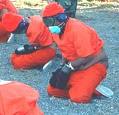 From the makers of ‘Secret Millionaire’, ‘How the other half live’ is Channel 4’s new program dealing with poverty in the UK. Each week a rich family looks at the life of a poor family and at the end of the program gives a certain amount of money or ‘sponsorship’ to that family.
From the makers of ‘Secret Millionaire’, ‘How the other half live’ is Channel 4’s new program dealing with poverty in the UK. Each week a rich family looks at the life of a poor family and at the end of the program gives a certain amount of money or ‘sponsorship’ to that family.
The makers of ‘How the other half live‘ may have had the best intentions in the world with this program, asking the viewer to explore the gap between rich and poor, highlighting the poverty that exists in UK and encouraging people to be as generous with those who need help in this country as they are with those abroad, but it is still, as Keith Watson put it in the Metro ‘patronising‘ and astonishingly contrived.
Instead of looking at the general picture of poverty in this country it focuses on a handful of ‘lucky’ people who are to become the benefactors of a handful of wealthy patrons. This view makes each episode an almost Dickensian style story of the hopeless poor being rescued by the good-hearted rich.
Having a nice easy solution at the end of each program, where a single familie’s problems are solved by a cheque book, actually masks the real issue of the thousands of other families who continue to live in poverty. It also fosters the idea that poverty is a personal issue to be solved by wealthy individuals rather than a societal issue to be dealt with by all.
What do you think?
Are these programs helping or hindering those in poverty?
What is wrong with rich people adopting poor families?
To find out about Spectacle’s Poverty and the media project please visit our Project Page




